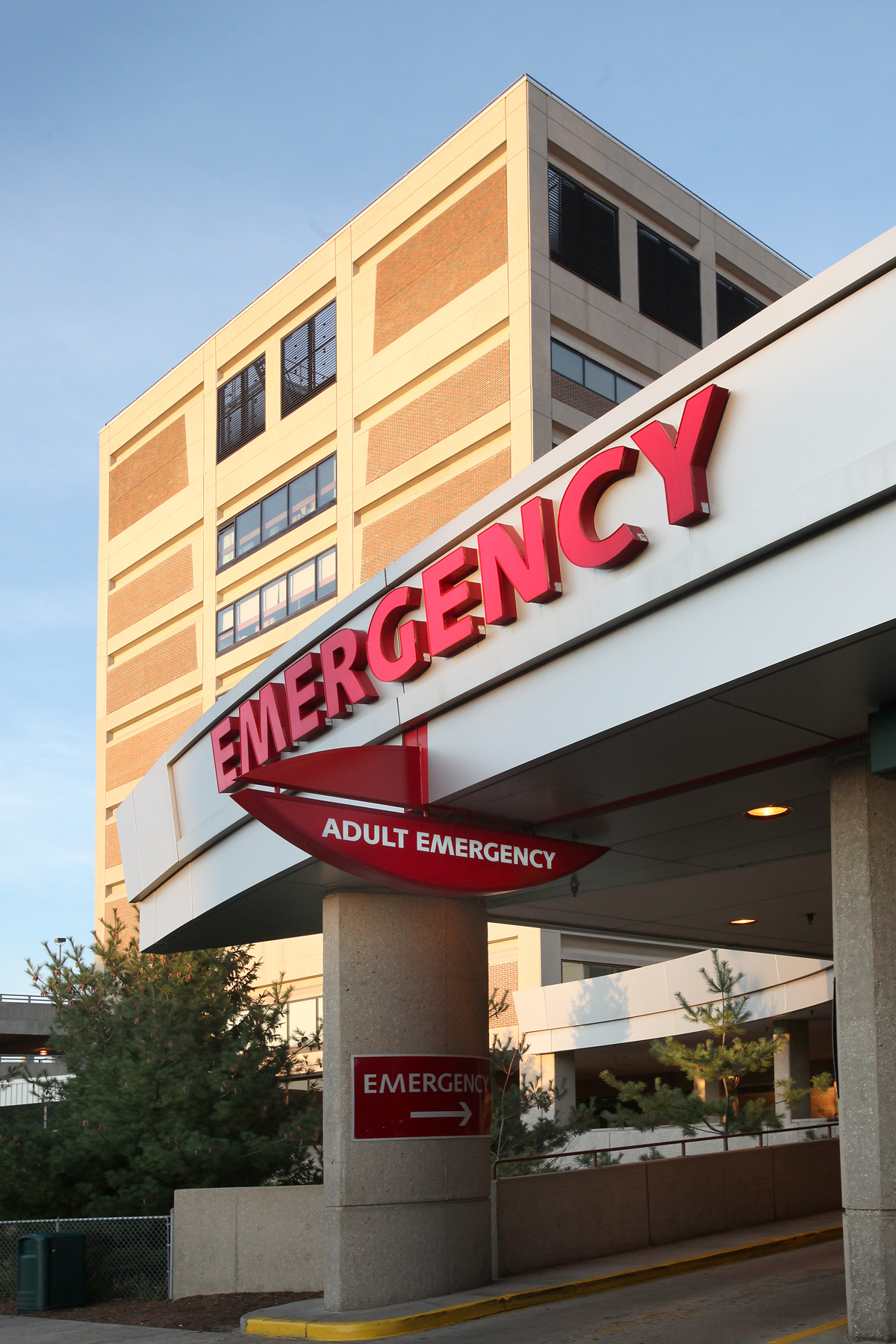Spectrum Health West Michigan
Area Emergency Departments Change Sobriety Clearance Process
New protocol allows for timelier behavioral health care

GRAND RAPIDS, Mich., Feb. 17, 2020 – Inebriated patients can begin the process of receiving follow-up care and assessments sooner thanks to a collaborative approach among area hospitals in measuring sobriety. The work was spearheaded by Spectrum Health.
This approach is a significant change in when emergency department (ED) patients can be evaluated and deemed clinically sober enough to participate in decisions regarding their care. It contrasts with the standard of waiting for a patient’s Blood Alcohol Limit (BAL) to drop to the legal limit required to operate a motor vehicle.
Those deemed clinically sober can more quickly have their needs met in terms of mental health and other assessments, leading to discharge and appropriate follow-up care. This approach can reduce unnecessary testing and patient length of stay while alcohol metabolism takes place.
After ruling out medical issues, and when acute alcohol use is suspected, a patient can now undergo a clinical protocol using an evidence-based measurement called Hack’s Impairment Index (HII)
HII measures gross motor function, mental activity, speech, tracing curve, eye movement and finger to nose testing. A HII score of less than four deems the patient clinically sober. Once medically clear, the patient can undergo disposition planning and coordination of post-acute care by hospital and community social workers and mental health clinicians.
“It’s a huge opportunity to improve care and begin follow-up treatment sooner,” said Phil Stawski, MD, a Spectrum Health emergency medicine specialist, who headed the adoption of this approach in West Michigan. Stawski said for habitual alcohol users, waiting hours for their blood alcohol level to drop can harm patients as alcohol withdrawal can be life threatening. Using the HII test takes minutes, versus waiting hours or even a day for an alcoholic’s BAL to drop below the legal driving limit.
“If they’re in the ED for a behavioral health complaint, we can use clinical sobriety as a measure for them to have their social work consult initiated and to provide whatever definitive psychiatric care they need without precipitating withdrawal symptoms,” Stawski said. Psychiatric complaints can include symptoms of hallucinations, paranoia, depression, anxiety, suicidal ideation or attempt, and mania.
An area planning consortium was led by Emergency Care Specialists, the teams of physicians that work in Spectrum Health EDs, and included Spectrum Health, Mercy Health Saint Mary’s, Metro Health, Holland Hospital, Pine Rest Christian Mental Health Services, Forest View Hospital, Hope Network and Network 180. All the organizations adopted the new protocol, as did community health agencies in surrounding counties.
This new process began in the fall and follows a year-long effort of education and planning, to ensure all consortium stakeholders utilize the same standard.
Stawski led the development of the new process after learning of a new medical clearance protocol when he was emergency department medical director for a hospital in Kansas, where they had approximately 7,000 behavioral health presentations each year. He needed to find a better solution to help these patients.
“It’s one of those unintended consequences, and it’s become my passion in the emergency department now to improve the care of our behavioral health patients,” Stawski said. “This new process is a quicker response in the care of patients.”
Stawski noted that ED staff in the region have been able to assess patients, create individualized discharge plans with community agencies and meet patient needs in a timelier fashion. In addition, with a shorter length of stay, it also helps emergency departments manage costs.
Spectrum Health’s primary focus is in establishing this new approach, remains patient care, Stawski said. “People come to emergency departments when they’re in crisis,” he said. “They need help. And we want to be there for them and let them know they’re going to get expedient care.”
###
People are at the heart of everything we do, and the inspiration for our legacy of outstanding outcomes, innovation, strong community partnerships, philanthropy and transparency. Corewell Health is a not-for-profit health system that provides health care and coverage with an exceptional team of 60,000+ dedicated people—including more than 11,500 physicians and advanced practice providers and more than 15,000 nurses providing care and services in 21 hospitals, 300+ outpatient locations and several post-acute facilities—and Priority Health, a provider-sponsored health plan serving more than 1.3 million members. Through experience and collaboration, we are reimagining a better, more equitable model of health and wellness. For more information, visit corewellhealth.org.
Contact:
Ellen Bristol
External Affairs Manager
Office: 616.391.4399
Mobile: 616.581.6474
Email: ellen.bristol@corewellhealth.org

